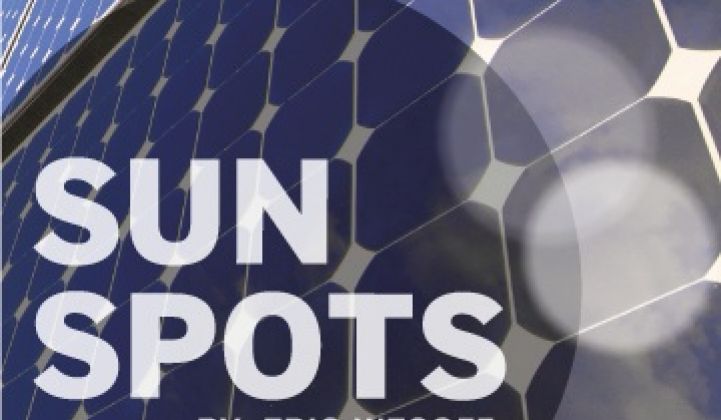Before working at Greentech Media, I had raised money from VCs to fund a few startups (one was acquired; the other shuttered) and had been contracted as a consultant by a dozen venture investors. I am not part of the insular VC community but I continue to observe them in the wild.
As a greentech reporter I have have written extensively on the startup culture in Silicon Valley and the thousands of cleantech companies spawned by VC investors. I have conducted hundreds of interviews with VCs, but these are rarely informative discussions -- VCs are fastidiously guarded when speaking about their portfolio firms and, in most cases, tend to be diplomatic when speaking about their competitors. Even if one of their investments is dead in the water, they will put on a brave face and speak about "great teams" or "sales traction" or at worst, some type of restructuring and reorganization to optimize capital. And they will keep that brave face on even if the ship is sinking tomorrow.
Part of this is responsible investor stewardship and part of this is VC culture.
But Scott Sandell of NEA departed from this norm in a recent article by Yuliya Chernova in VentureWire covering CIGS thin film aspirant HelioVolt of Austin, Texas.
Here's what he said:
"The next step of evolution requires a lot more capital than we have. We are actively selling the company." He told Chernova that HelioVolt "had hired Bank of America Merrill Lynch to conduct the sale and that it was in the later stages of the process, but declined to name potential bidders."
In a return to form, he said, "They've made tremendous technical progress" -- but then spoke frankly: "They've lagged behind in terms of getting to mass production." (That would be in comparison to a long list of CIGS thin film firms such as Nanosolar, Solyndra, MiaSolé, Solar Frontier, SoloPower and so on.)
NEA funded HelioVolt in 2005 but obviously doesn't have the appetite to keep investing in the firm. Here's the most interesting quote from Sandell in the VentureWire article:
"I'd like to return all the money to all the shareholders. We'll see what the market bears," Sandell said. "It's possible we'll get more than that."
That's not a sentence one hears a lot from VCs. It's essentially throwing in the towel on their investment. You can read more about HelioVolt's viewpoint in this article.
HelioVolt has raised almost $150 million from NEA and other investors. NEA has two partners on the HelioVolt board.
Sandell is also on the board of CPV aspirant SolFocus and fuel cell firm Bloom Energy. Let's hope that Sandell will be equally upfront about those two firms in future interviews.



